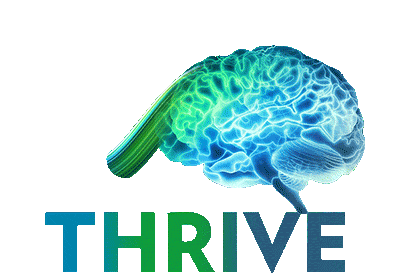Neuroscience Community of Care
Welcome to the THRIVE Initiative! You have reached an online tool aimed at providing clinicians and patients with up-to-date clinical information on idiopathic hypersomnia, considerations for managing developmental and epileptic encephalopathies, and the use of cannabidiol as an option for certain epilepsy conditions. Recent advances in identification and novel treatment methods are driving care of these conditions forward, which translates to improved patient outcomes and quality of life. Our goal is to provide practical and relevant information about each condition along with the latest updates on innovative treatments for both patients and clinicians.
We welcome you to explore our Clinician and Patient portals in the topic areas above, and hope you gain insight on management of these conditions. Thank you for visiting!
Idiopathic Hypersomnia
Idiopathic hypersomnia (IH) is a chronic neurological disorder that results in daytime sleepiness, frequently accompanied by long nocturnal or daytime sleep, unrefreshing sleep, and difficulties with awakening, cognitive dysfunction, and autonomic symptoms. Staying current with the latest information on presentation, prognosis, and advances in treatment is essential to maintaining proper sleep and daytime functioning.
Idiopathic Hypersomnia
Idiopathic hypersomnia (IH) is a problem that causes daytime sleepiness. It may also lead to long nighttime or daytime sleep, unrefreshing sleep, and difficulty waking up. Staying current with the latest information on IH, such as symptoms and advances in treatment, is important for maintaining proper sleep and daytime health.
Cannabidiol for Epilepsy
Epilepsy is a chronic neurological disorder that causes patients to have recurrent seizures. Cannabidiol is a component of the Cannabis sativa plant (or can be synthetically produced), and has been used to manage anxiety, pain, and other conditions without the psychoactive effects of another common Cannabis ingredient - tetrahydrocannabinol. One formulation of cannabidiol is now FDA-approved to manage certain types of epilepsy.
Cannabidiol for Epilepsy
Epilepsy is a brain disorder that causes seizures. Cannabidiol (CBD) is a chemical within the Cannabis sativa plant, which unlike the other major Cannabis sativa metabolite—tetrahydrocannabinol—does not have intoxicating effects. CBD has been used to help manage pain, anxiety, and other conditions, and there is now an FDA-approved CBD product that can be used to treat certain types of epilepsy.
Developmental and Epileptic Encephalopathies
DEEs are drug-resistant seizure disorders that most often begin in infancy and are associated with seizures of long duration and major developmental delays. These conditions, which include Lennox-Gastaut syndrome, Dravet syndrome, tuberous sclerosis complex and others, are challenging to diagnose and effectively treat. However, genetic testing and evolving therapeutic options have revolutionized DEE management.
Developmental and Epileptic Encephalopathies
DEEs are drug-resistant seizure disorders that most often begin in infancy and are associated with seizures of long duration and major developmental delays. These conditions, which include Lennox-Gastaut syndrome, Dravet syndrome, tuberous sclerosis complex and others, are challenging to diagnose and effectively treat. However, genetic testing and evolving therapeutic options have revolutionized DEE management.

This activity is provided by Med Learning Group.
This activity is supported by an independent medical education grant from Jazz Pharmaceuticals.

